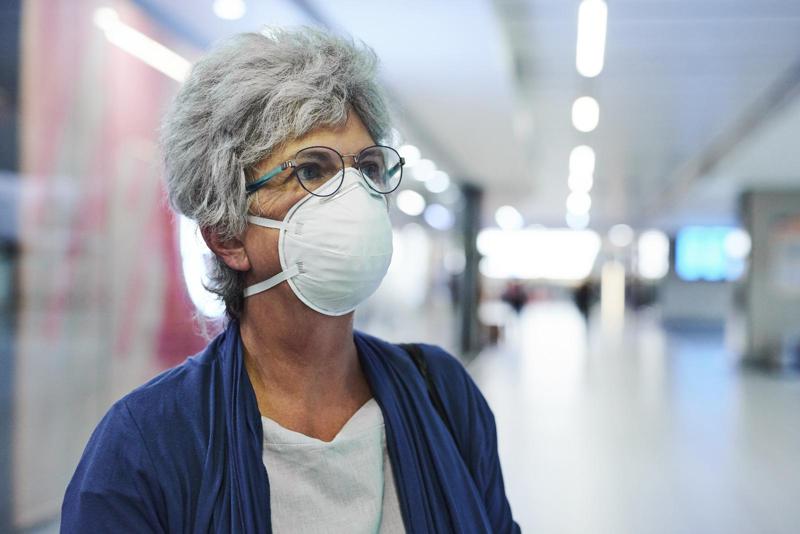Italy, known for its rich cultural heritage, picturesque landscapes, and mouthwatering cuisine, has always been a popular travel destination. However, the ongoing COVID-19 pandemic has significantly impacted the tourism industry worldwide.
As the world slowly emerges from lockdowns and restrictions, travelers are left questioning whether it is safe to embark on that long-awaited trip to Italy. In this article, we will delve into the current state of travel in Italy and provide you with the essential information needed to make an informed decision.
Italy has endured substantial challenges throughout the pandemic and has worked diligently to control the spread of the virus within its borders. From strict lockdown measures to proactive testing and tracing initiatives, Italy continues to prioritize public health while gradually reopening its doors to international travelers. However, safety remains a top concern for both visitors and locals alike.
Understanding the travel restrictions and guidelines set by the Italian government is crucial for anyone considering a trip. These regulations may vary depending on factors such as vaccination status, country of origin, or specific regions within Italy. By familiarizing ourselves with these guidelines, we can ensure compliance with local protocols and help prevent any potential risks associated with traveling during this time.
Understanding the Travel Restrictions and Guidelines in Italy
Italy, like many countries around the world, has implemented travel restrictions and guidelines to manage the COVID-19 pandemic. Understanding these measures is essential for anyone considering traveling to Italy. The restrictions and guidelines in place prioritize public health and safety while allowing for the gradual reopening of travel and tourism.
To enter Italy, travelers must be aware of several key requirements. Currently, entry into Italy is allowed for travelers from the European Union (EU), European Economic Area (EEA), and certain other countries deemed safe by Italian authorities.
However, it is important to check for any updates or changes in this list before making travel plans. Additionally, all incoming travelers are required to present a negative PCR or antigen test result taken within 48 hours prior to arrival, fill out a digital Passenger Locator Form (PLF), and undergo health screenings upon arrival.
Once in Italy, there are guidelines in place to ensure the safety of both locals and visitors. Face masks are mandatory in most enclosed public spaces as well as outdoors when it is not possible to maintain social distancing.
Social distancing measures should be practiced at all times, with a minimum distance of one meter between individuals who are not from the same household. Hand hygiene should be maintained through frequent handwashing or the use of hand sanitizers available in public places.
| Requirement | Description |
|---|---|
| Negative COVID-19 Test | Travelers must provide a negative PCR or antigen test result taken within 48 hours prior to arrival. |
| Digital Passenger Locator Form (PLF) | All incoming travelers are required to fill out a digital PLF providing information on their health status and recent travel history. |
| Health Screenings | Upon arrival, travelers may be subject to health screenings, including temperature checks. |
| Mandatory Face Masks | Face masks are mandatory in most enclosed public spaces as well as outdoors when social distancing is not possible. |
| Social Distancing | Individuals should maintain a minimum distance of one meter from others who are not from the same household. |
| Hand Hygiene | Frequent handwashing or use of hand sanitizers is encouraged, especially in public places. |
It is important for travelers to stay informed about the latest travel restrictions and guidelines before and during their trip to Italy. Adhering to these measures will help ensure a safe and enjoyable experience while visiting the country.
Health and Safety Measures Implemented by Italy’s Tourism Industry
Italy’s tourism industry has implemented various health and safety measures to ensure the well-being of both visitors and locals. These measures are in response to the COVID-19 pandemic and aim to minimize the risk of transmission while allowing travelers to enjoy their visit.
One key measure is the implementation of rigorous cleaning and sanitization protocols in hotels, restaurants, attractions, and other tourist facilities. Common areas are regularly disinfected, high-touch surfaces are frequently cleaned, and hand sanitizing stations are readily available. Additionally, many establishments have adopted contactless payment options and digital menus to reduce physical contact between staff and customers.
Another important aspect is the enforcement of social distancing rules. To maintain proper distance between individuals, capacity limits have been imposed in public spaces such as museums, art galleries, and historical sites. Signage and floor markings help guide tourists on practicing social distancing while visiting these places.
The use of face masks is mandatory in indoor public spaces as well as in outdoor areas where social distancing cannot be maintained. This requirement applies to both visitors and staff members working in the tourism industry. It’s essential for travelers to bring an adequate supply of masks with them for their entire trip.
To provide a safe travel experience, Italy’s tourism industry has also focused on improving ventilation systems in enclosed spaces such as hotels and transportation facilities. Proper air filtration helps reduce the concentration of airborne particles that may carry the virus.
By implementing these health and safety measures, Italy’s tourism industry aims to strike a balance between welcoming international visitors and ensuring their safety during their stay. Travelers should familiarize themselves with these guidelines before embarking on their trip to Italy.
| Health and Safety Measures Implemented by Italy’s Tourism Industry |
|---|
| – Rigorous cleaning and sanitization protocols |
| – Enforced social distancing rules |
| – Mandatory use of face masks |
| – Improved ventilation systems |
Monitoring the COVID-19 Situation in Italy
As the world continues to grapple with the ongoing COVID-19 pandemic, it is crucial for prospective travelers to stay informed about the situation in their desired destination. This section will provide an overview of how Italy is monitoring the COVID-19 situation, including updates on cases, vaccinations, and variants.
Italy has a robust system in place to monitor the spread of COVID-19 and track its impact on public health. The country’s health authorities closely monitor daily case numbers and provide regular updates to the population. It is important for travelers to stay updated on these numbers and understand any regional variations or localized outbreaks that may occur.
Additionally, Italy has been actively vaccinating its population against COVID-19. The vaccination campaign has made significant progress, with a large portion of the population now fully vaccinated. Travelers should be aware that vaccination rates vary across different regions of Italy, so it is important to check the specific vaccination rates for their intended destinations.
Furthermore, as new variants of the virus continue to emerge globally, Italy remains vigilant in monitoring and managing these developments. The country has implemented stringent measures at airports and other points of entry to detect and prevent the spread of variants. Travelers should be aware that certain restrictions or requirements may be in place if they are coming from countries with known variant cases.
Is Italy Open to International Tourists? Exploring Entry Requirements and Protocols
Italy has reopened its borders to international tourists, but there are certain entry requirements and protocols in place to ensure the safety of both travelers and residents. Before planning a trip to Italy, it is essential to understand these guidelines and prepare accordingly.
Entry Requirements
- All travelers entering Italy must present a negative COVID-19 test result taken within 48 hours before arrival. The accepted tests include molecular (PCR) or antigen tests.
- Fully vaccinated travelers from the European Union, Schengen Area, United Kingdom, and several other countries are exempt from quarantine requirements. Proof of vaccination with an authorized vaccine must be provided.
- Non-vaccinated travelers from certain countries may be subject to a mandatory quarantine period upon arrival. The duration of the quarantine can vary based on the traveler’s origin.
Protocols during Travel
- All travelers must complete a digital Passenger Locator Form before entering Italy. This form includes personal information and details about the intended stay in Italy.
- Face masks are mandatory in all indoor public spaces and on public transportation throughout Italy.
- Travelers should adhere to social distancing measures by maintaining at least one meter (three feet) distance from others who are not part of their travel group.
It is crucial for travelers to stay informed about any updates or changes in these requirements, as they can vary depending on the current COVID-19 situation. Checking with official government sources or contacting local embassies or consulates can provide the most up-to-date information regarding entry requirements and protocols.
Overall, while Italy has reopened to international tourists, it is important for travelers to comply with all entry requirements and protocols to ensure a safe and smooth travel experience. By following these guidelines, visitors can enjoy the beautiful sights, rich history, and warm hospitality that Italy has to offer while keeping themselves and others safe.
Assessing the Safety of Accommodation Options in Italy
When considering a trip to Italy during these uncertain times, one important aspect to consider is the safety of accommodation options. Whether you prefer hotels, vacation rentals, or bed and breakfasts, it is crucial to assess the measures taken by each establishment to ensure the health and safety of their guests.
Hotels: Implementing Stringent Cleaning Protocols
Many hotels in Italy have implemented enhanced cleaning protocols to provide a safe and comfortable environment for their guests. This includes more frequent cleaning and disinfection in common areas such as lobbies, elevators, and hallways. Additionally, many hotels have modified check-in procedures to minimize contact with staff and other guests.
To provide peace of mind for guests, some hotels have also adopted advanced technologies such as contactless check-in/out systems and keyless entry. These measures not only reduce physical touchpoints but also streamline the check-in process for a smoother experience.
It’s worth noting that some hotels have limited their capacity to allow for social distancing between guests. This may result in reduced availability during peak travel periods, so it is advisable to book your accommodation well in advance.
Vacation Rentals: Ensuring Cleanliness and Flexibility
Vacation rentals such as apartments or houses can be an attractive option for travelers who prefer a more private and independent stay. Many rental companies and hosts in Italy have implemented stringent cleanliness protocols similar to those of hotels.
Before booking a vacation rental, it is essential to communicate with the host or rental company regarding their cleaning practices. Ask about their sanitization procedures, frequency of cleaning between guest stays, and any specific precautions they are taking.
Additionally, flexibility has become increasingly important when considering accommodation options. Check if the rental offers flexible cancellation policies that accommodate unexpected changes due to COVID-19-related issues.
Bed and Breakfasts: Emphasizing Personalized Service
Bed and breakfasts in Italy often provide a more intimate and personalized experience for guests. While they may have fewer rooms compared to hotels, many B&Bs have adapted their operations to prioritize the health and safety of their guests.
Similar to hotels and vacation rentals, B&Bs have implemented enhanced cleaning measures and sanitation practices. Additionally, some establishments now offer contactless check-in options or staggered breakfast timings to comply with social distancing guidelines.
When considering a stay at a bed and breakfast, it is recommended to contact the property directly to discuss their specific safety measures. They will be able to address any concerns or questions you may have regarding your stay.
Navigating Transportation
When it comes to traveling within Italy, whether by air, car, or public transportation, many travelers may be wondering about the safety and risks involved amidst the ongoing pandemic. Understanding the precautions and measures put in place can help travelers make informed decisions.
Air travel within Italy has implemented several health and safety protocols to ensure the safety of passengers. Airlines have enhanced cleaning and sanitation procedures for cabins and common areas. The use of HEPA filters also helps to improve air quality on planes by filtering out airborne particles, including viruses. Additionally, passengers are required to wear masks throughout their journey. It is advisable for travelers to check with their respective airlines for specific guidelines and requirements before their flight.
Driving in Italy allows for more control over personal safety as it limits contact with others outside of a traveler’s own party. However, it is essential to follow general COVID-19 precautions such as wearing masks in enclosed spaces like rest stops or petrol stations. It is also crucial to research local traffic regulations and rules before embarking on a road trip in Italy.
Using public transportation in Italy may involve more interaction with other individuals. However, transport authorities have taken measures to minimize the risk of transmission. Face coverings are mandatory when using public transportation, including buses, trains, trams, and metros. Some public transport operators have also limited passenger capacity to maintain social distancing measures onboard.
The Importance of Travel Insurance in Uncertain Times
Travel insurance has always been essential when planning a trip, but its significance has become even more apparent in uncertain times. With the ongoing COVID-19 pandemic, having comprehensive travel insurance is crucial when traveling to Italy or any other destination. This section will discuss the importance of travel insurance and highlight its benefits in uncertain times.
- Protection against Trip Cancellations and Interruptions: Travel insurance provides coverage for trip cancellations or interruptions due to unforeseen circumstances such as sudden illness, natural disasters, or government-imposed travel restrictions. If your trip is canceled or cut short due to any of these reasons, travel insurance can reimburse you for the non-refundable expenses you have already paid for accommodations, flights, tours, and other pre-paid expenses.
- Emergency Medical Expenses Coverage: Along with the risk of trip disruptions, the pandemic has highlighted the importance of having medical coverage while traveling. Travel insurance can provide coverage for emergency medical expenses if you fall ill or get injured during your trip. This includes hospital stays, doctor visits, medications, and emergency medical evacuations if necessary.
- Protection against Lost Baggage and Personal Belongings: Losing your luggage or personal belongings during your trip can be a major inconvenience. However, travel insurance typically offers coverage for lost baggage and personal belongings. It can reimburse you for the cost of replacing essential items such as clothing, toiletries, electronics, and valuable items that are lost or stolen during your travels.
In these uncertain times when travel plans can change abruptly due to various factors including health concerns and government regulations, having travel insurance offers peace of mind and financial protection. It is important to carefully review the terms and conditions of different travel insurance policies to ensure they cover specific scenarios related to COVID-19 and other potential disruptions.
What to Expect
Italy is a popular destination that attracts millions of tourists every year. However, in the midst of the COVID-19 pandemic, the travel experience in Italy has undergone significant changes. Travelers should be prepared for certain expectations and adjustments when visiting Italy during this time.
Health and Safety Protocols
When traveling to Italy amidst the pandemic, visitors can expect to encounter various health and safety measures implemented throughout the country. These measures are aimed at minimizing the spread of COVID-19 and ensuring the well-being of both locals and tourists. Some common protocols include:
- Face Masks: Wearing face masks is mandatory in indoor public spaces, on public transportation, and in crowded outdoor areas where maintaining social distancing is challenging.
- Social Distancing: Travelers should maintain a distance of at least one meter from others who are not part of their household.
- Temperature Checks: Temperature checks may be conducted at various points such as airports, train stations, and tourist attractions.
- Sanitization: Hand sanitizing stations are readily available in many public places. It is advisable to carry your own sanitizer as well.
Sightseeing and Attractions
It’s important to note that some tourist attractions or museums may have limited capacity due to social distancing requirements. This means that there might be longer wait times or a need to pre-book tickets online. Additionally, guided tours may have smaller groups or modified itineraries to ensure adherence to safety guidelines.
Restaurants and Bars
Restaurants and bars have also implemented certain restrictions in order to prioritize health and safety. Visitors can expect reduced seating capacity, spaced-out tables, QR code menus for contactless ordering, and enhanced cleaning protocols. It’s advisable to make reservations in advance to secure a table at popular dining establishments.
By understanding and adhering to these health and safety protocols, travelers can have a more enjoyable and responsible trip to Italy amidst the ongoing pandemic. It is important to regularly monitor updates and guidelines from local health authorities and the Italian government for any changes that may impact travel plans.
Tips for Staying Safe and Healthy While Traveling in Italy
When traveling to Italy during these uncertain times, it is crucial to prioritize your safety and health. Here are some tips to help you stay safe and healthy while exploring the beautiful country:
- Follow the local health guidelines: Stay updated on the latest health guidelines and regulations set by the Italian government and local authorities. These guidelines may include wearing masks indoors and in crowded outdoor areas, practicing social distancing, and maintaining good hand hygiene.
- Choose outdoor activities: Opt for outdoor activities that allow for better ventilation and a lower risk of transmission. Italy boasts stunning landscapes, so take advantage of hiking trails, outdoor markets, or visiting open-air attractions.
- Avoid crowded tourist hotspots: While popular tourist spots like the Colosseum in Rome or the canals of Venice are undoubtedly worth visiting, consider exploring less crowded areas or visiting during off-peak hours to avoid large crowds.
- Make use of technology: Take advantage of technology to reduce unnecessary contact with surfaces and people. Use mobile apps for ticket purchases, contactless payments, virtual tours, or digital restaurant menus whenever possible.
- Research accommodations with health protocols: Before booking your accommodation in Italy, thoroughly research how they are implementing health and safety measures. Look for hotels that have implemented enhanced cleaning protocols, contactless check-in/check-out options, and proper ventilation systems.
- Plan ahead for dining options: Check if restaurants require advance reservations due to reduced capacity limits. Consider outdoor dining options as they generally provide better air circulation.
- Have essential supplies with you: Pack necessary supplies such as face masks, hand sanitizers with at least 60% alcohol content, disinfecting wipes for surfaces, and personal medication.
- Be prepared for testing requirements: Some regions in Italy may require proof of a negative COVID-19 test result upon arrival or entry into certain establishments such as museums or theaters. Stay updated on any testing requirements specific to your destination before your trip.
By adhering to these tips and staying informed about the current situation in Italy, you can minimize the risks associated with travel and ensure a safe and enjoyable experience. Remember to remain flexible as circumstances may change, and always prioritize your health and well-being when making decisions during your travels.
Final Thoughts and Conclusion
Italy is a country known for its rich history, vibrant culture, and stunning landscapes. However, in the midst of the ongoing COVID-19 pandemic, many travelers are questioning whether it is safe to travel to Italy yet.
In this article, we have provided an overview of the current state of travel in Italy, including the travel restrictions and guidelines in place, the health and safety measures implemented by Italy’s tourism industry, and how to assess the safety of accommodation options and transportation. We have also discussed entry requirements and protocols for international tourists and highlighted the importance of travel insurance during uncertain times.
Before making a decision about traveling to Italy, it is essential to research and stay informed about the latest developments regarding COVID-19 cases, vaccinations, and variants in the country. Monitoring these factors will give you a better understanding of the risk level associated with travel to Italy at any given time. Stay updated by checking reliable sources such as local health authorities or official government websites.
When considering accommodations in Italy, it is important to choose options that prioritize health and safety measures. Many hotels have implemented enhanced cleaning protocols and offer contactless services to minimize the risk of exposure. Look for accommodations that follow industry guidelines and standards for sanitization and hygiene.
Transportation is another key aspect to consider when planning your trip. Air travel has been significantly affected by the pandemic, with various travel restrictions and guidelines in place. It is crucial to check with airlines regarding safety measures such as mask requirements, social distancing protocols, and air filtration systems before booking your flights.
If you prefer driving or using public transportation in Italy, be aware of any specific guidelines or restrictions put in place by local authorities. Consider renting a car for more flexibility and control over your movement while adhering to proper sanitation practices.
Lastly, obtaining comprehensive travel insurance is strongly recommended when visiting Italy during these uncertain times. Travel insurance can provide coverage for unexpected circumstances related to COVID-19 such as trip cancellations, medical expenses, and emergency assistance.
Additional Resources and References for Travel Planning.
As the global travel industry slowly begins to recover from the impact of the COVID-19 pandemic, many individuals are eager to explore new destinations and embark on long-awaited trips. Italy, known for its rich history, breathtaking landscapes, and vibrant culture, has always been a popular choice among travelers.
However, with ongoing concerns about the virus and its variants, it is essential for prospective tourists to carefully consider their options and make informed decisions when planning their trip to Italy.
Before making any travel arrangements, it is vital to stay updated on the current state of travel in Italy. As outlined in this article, it is evident that Italy has taken significant measures to ensure the health and safety of both its residents and visitors.
The tourism industry has implemented various protocols and guidelines, including enhanced sanitation practices, social distancing measures, and mandatory mask-wearing in public spaces. These efforts indicate a commitment towards protecting the well-being of all those who choose Italy as their destination.
Monitoring the COVID-19 situation in Italy is crucial when considering whether or not it is safe to travel there. By keeping an eye on daily cases, vaccination rates, and any emerging variants of concern, travelers can gauge the level of risk they may encounter during their visit. Additionally, understanding entry requirements and protocols for international tourists is essential in avoiding any last-minute surprises or complications. Familiarizing oneself with these guidelines will help ensure a smoother and safer journey.
Ultimately, each individual must assess their personal circumstances and weigh the pros and cons before deciding whether or not to travel to Italy at this time. It is essential to prioritize personal safety above all else while also respecting local regulations and guidelines. Consulting reputable sources such as official government websites or international health organizations can provide additional resources for accurate information regarding travel planning during these uncertain times.
In conclusion, traveling to Italy amidst the ongoing COVID-19 pandemic requires careful consideration and research. By understanding the current state of travel, health and safety measures implemented by the tourism industry, entry requirements, and monitoring the COVID-19 situation in Italy, individuals can make an informed decision.
While the desire to explore new destinations is understandable, it is crucial to prioritize personal safety and act responsibly while traveling. By staying informed, taking necessary precautions, and being flexible in our plans, we can navigate these uncertain times with confidence and enjoy the beauty that Italy has to offer.
- Official Government Websites: Check the latest COVID-19 travel advisories on the official websites of your home country’s government as well as Italy’s Ministry of Foreign Affairs or Health Department.
- International Health Organizations: Refer to authoritative sources such as the World Health Organization (WHO) or the Centers for Disease Control and Prevention (CDC) for up-to-date information on travel guidelines and recommendations.
- Travel Insurance Providers: Contact reputable travel insurance companies to understand policies that provide coverage related to COVID-19, including medical expenses and trip cancellation/interruption protection.
- Local Tourism Websites: Visit official tourism websites for specific regions or cities in Italy to access additional guidance on local regulations, attractions, accommodations, dining options, and any specific restrictions unique to certain areas.
- Travel Forums and Online Communities: Engage with fellow travelers on online platforms dedicated to travel discussions. Share experiences, ask questions, and gather insights from those who have already traveled or are planning trips to Italy.
Remember that circumstances can change rapidly during a pandemic; therefore, always consult updated resources close to your departure date for accurate information relevant at that time. Happy travels.
Frequently Asked Questions
Is it safe to go to Italy right now?
As of the time of writing, it is important to consider several factors when determining if it is safe to go to Italy right now. The safety situation can vary depending on the current circumstances, such as the COVID-19 pandemic or any ongoing political or civil unrest. It is crucial to stay informed about travel advisories issued by your government or international organizations like the Centers for Disease Control and Prevention (CDC) or World Health Organization (WHO).
Additionally, monitoring the current local conditions in Italy and following any guidelines or restrictions implemented by Italian authorities is essential. Consulting with healthcare professionals about any health risks is highly recommended. Ultimately, assessing the situation comprehensively and making an informed decision based on accurate and up-to-date information will help ensure personal safety.
What do US citizens need to travel to Italy?
US citizens have specific requirements when traveling to Italy. At a minimum, they need a valid US passport that should be valid for at least six months beyond their intended departure from Italy. It is crucial to review entry requirements thoroughly as they may change over time.
Currently, US travelers are not required to obtain a visa for stays in Italy shorter than 90 days under the Visa Waiver Program (VWP). However, there are additional requirements in place due to the COVID-19 pandemic, such as providing proof of a negative COVID-19 test result taken within 72 hours before arrival or undergoing quarantine upon entry. It is crucial to check these requirements with both Italian authorities and relevant US government agencies like the Department of State before planning travel.
Do US citizens need a visa for Italy 2023?
The specific visa requirements for US citizens traveling to Italy in 2023 may depend on various factors such as changes in immigration policies, bilateral agreements, and international situations at that time; therefore, it is difficult to provide a definitive answer without more precise information closer to 202 However, currently under normal circumstances not considering temporary changes due to unforeseen events like pandemics – US citizens can travel within Italy for up to 90 days without a visa under the Visa Waiver Program.
It is always recommended to consult with the Italian Consulate in the United States or check official government websites for the most current and accurate information regarding visa requirements leading up to your intended travel in 202

I’m a passionate traveler, writer, and Italophile. My fascination with Italy’s history, art, and culture has led me on countless adventures across the Italian landscape. Through “I Live Italy,” I share my love for this extraordinary country and aims to inspire others to explore its boundless beauty.





